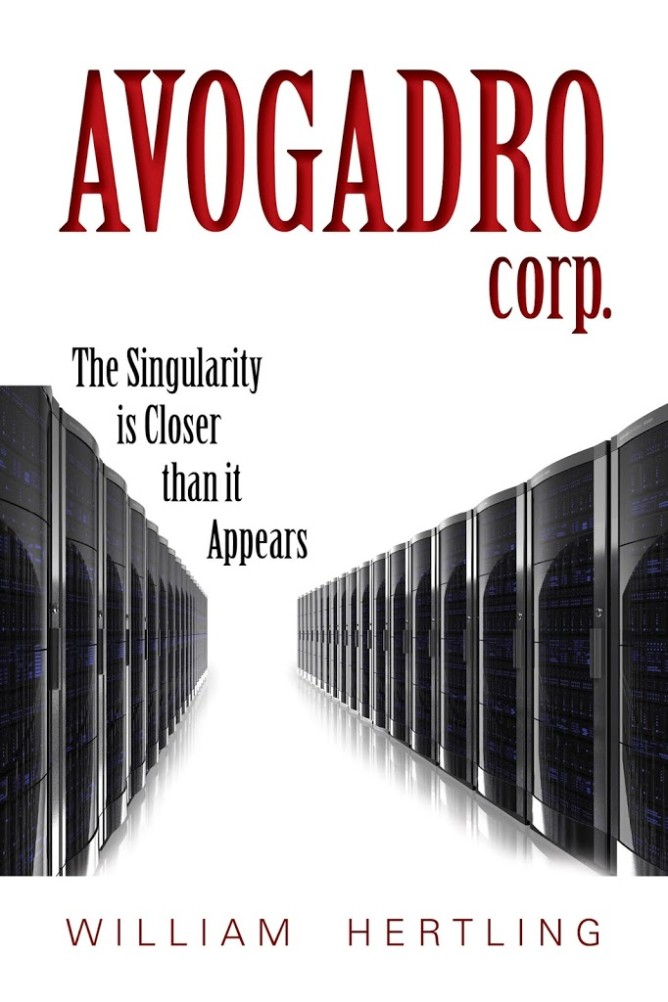For those of you that haven’t heard, after a two year journey, my novel Avogadro Corp: The Singularity Is Closer Than It Appears is published!
Avogadro Corp is a techno-thriller about the accidental creation of an artificial intelligence at the world’s largest Internet company, and the subsequent race to contain it, as it starts to manipulate people, transfer funds, and arm itself.
It’s available in paperback, for the kindle, and in epub format for a variety of other e-readers.
If you’ve already bought a copy – THANK YOU! It means so much to me.
If not, I hope you’ll buy a copy and enjoy it, or consider giving it as a gift to someone who loves techno-thrillers or science fiction.
The Next Step
Writing Avogadro Corp was incredibly fun, and the path to publication was a great learning experience. But now that it’s published, the next challenge I face is to help it rise above the noise of thousands of other books.
Here’s just a few of the things that help a book get noticed: sharing it on Facebook or twitter, buying it or giving it as a gift, providing a review on Amazon, blog posts that link to it, emails to friends about it.
Anything you can do to help support my book would be tremendous!
Bonus: A Free Kindle Fire
If you don’t yet have a Kindle Fire and would like one for free, I’m giving one away. This is a thank you for all the feedback and help I received over the last six months. (As usual, I was inspired by Tim Ferriss to do this, and in fact won the Kindle Fire from Tim in his own book promotion contest.)
Here’s the deal:
- Spread the word in the next 7 days! Send people to this blog post or the Avogadro Corp page on Amazon. Here are some ideas: Facebook “like”, Facebook sharing, retweets, Twitter, e-mail, e-mail signature, blog posts, or a review if you’ve already read it. You can sing about it from street corners too, but this may get you funny looks.
- By 9am PST on Dec. 18 (next Sunday), leave a comment on this blog post telling me what you did. If possible, quantify the impact (clicks, page views, etc.).
I’ll consider the first 50 submissions, if I get that many, and from the 5 that I think did the best job (subjective, I know), I’ll pick one to receive the Kindle Fire. The 4 runner ups will receive a $25 Amazon gift card. Void where prohibited, robots and artificial intelligences under 21 not allowed, no prize awarded if the AI apocalypse occurs before the contest ends, etc., etc. Winners will be announced next week.
Again, even if you don’t want the Kindle Fire, anything you can do to help promote Avogadro Corp is still awesome!
Resources
If you take this on, here’s a few links that might help:
- http://amzn.to/avogadroprint : use this as the main Amazon link.
- http://avogadrocorp.com : my homepage for the book.
- http://hertling.wpengine.com/2011/12/avogadro-corp-published-plus-a-free-kindle-fire/ : this blog post
- Two different cover images you can use if you like:
Happy holidays!







